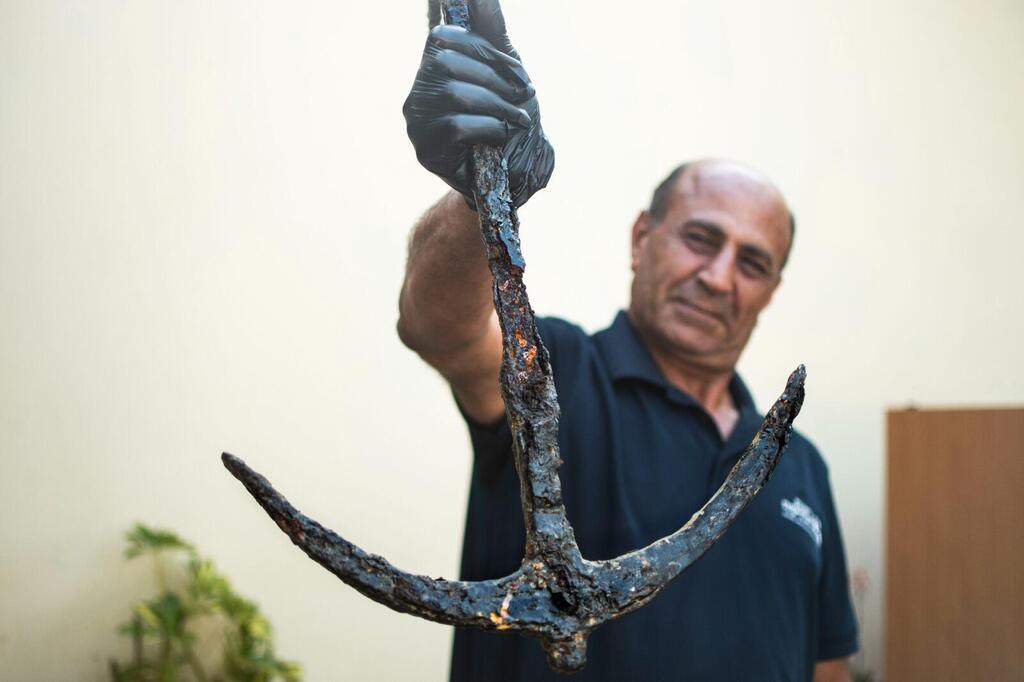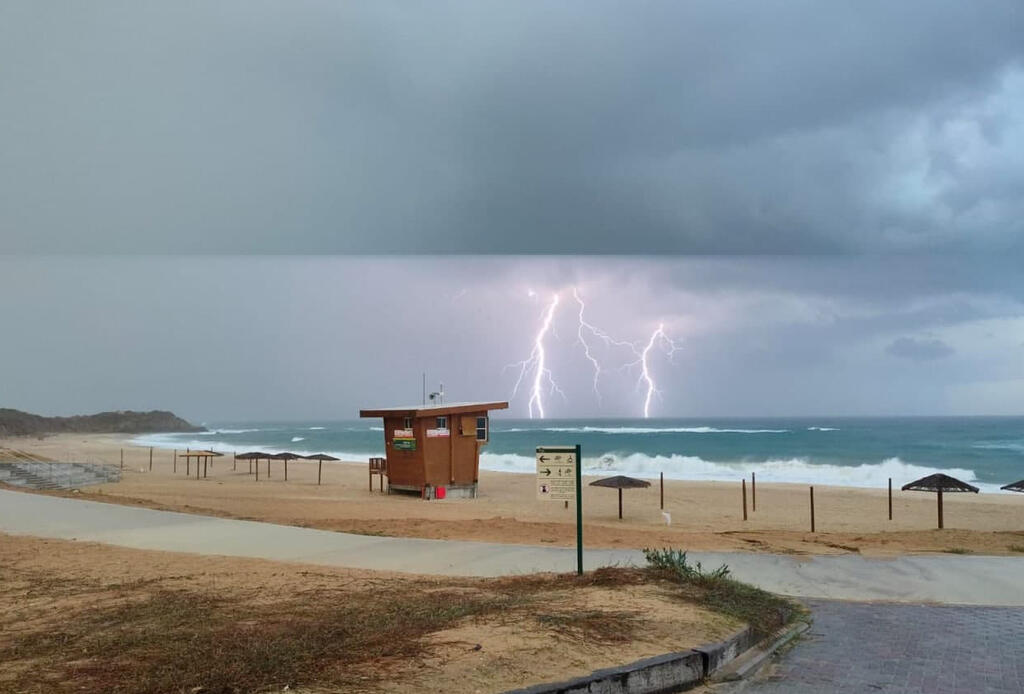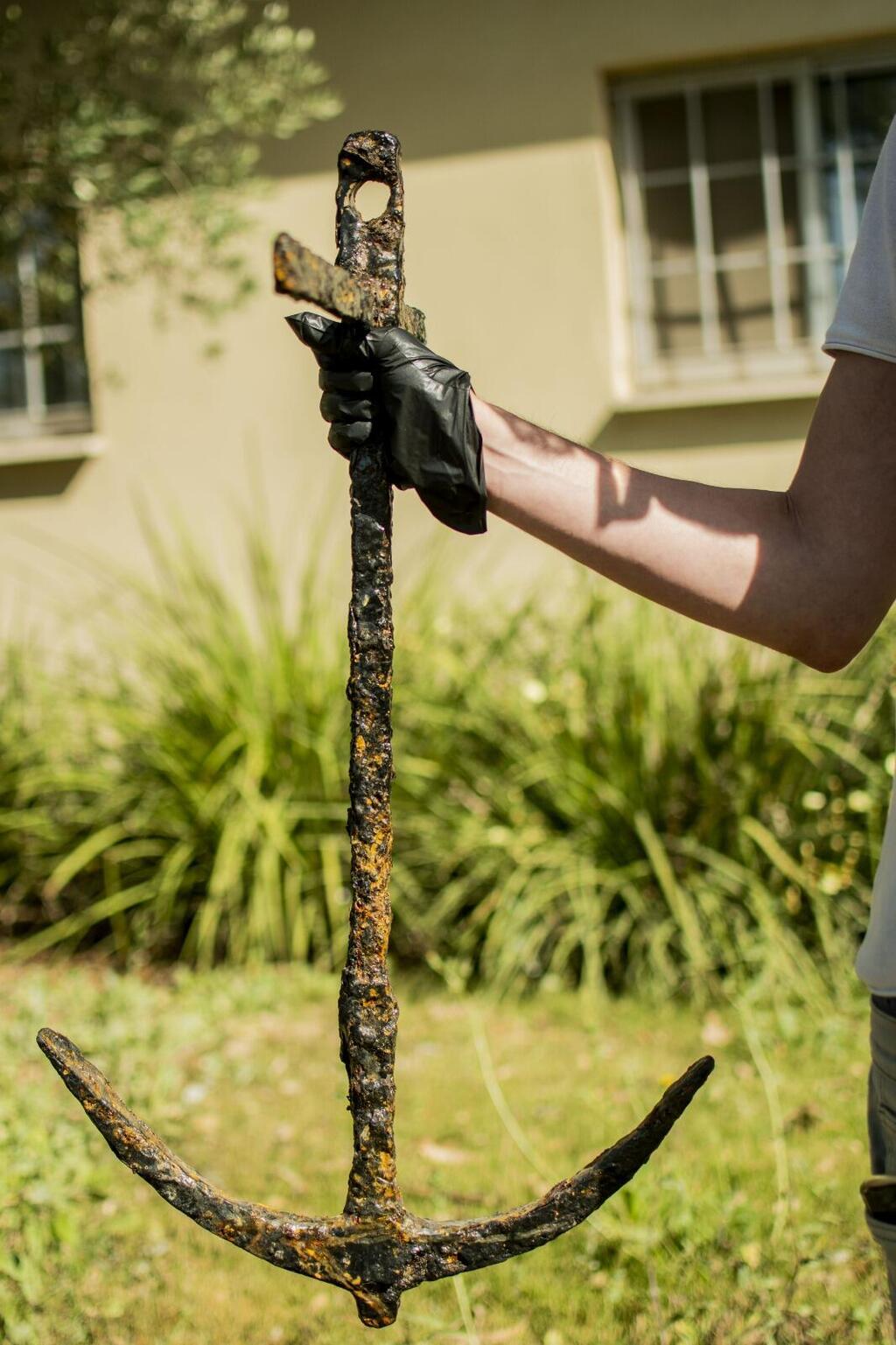A rare, small anchor believed to be over 1,700-year-old has been returned to the state as part of a joint initiative by the Heritage Ministry and the Antiquities Authority.
More stories:
A diver identified only by his first name, Moshe, encountered the anchor buried in the seabed off Palmahim Beach (Yavne-Yam archaeological site) in 1996. At first, he was unsure of its significance, as it was covered in marine encrustation and sediments. After cleaning it, he realized its historical importance.
The initiative calls on citizens to return ancient artifacts in their possession to the Antiquities Authority. The operation aims to increase public awareness of antiquities and their significance, uncover valuable antiquities held by the public, and return them to their "natural home," potentially extracting significant historical knowledge from them.
According to Kobi Sharvit, director of the Marine Archaeology Unit at the IAA, "This is a small anchor from the Roman period, which may have been used to moor a fishing boat."
"These anchors begin to appear in the first century BC, until the third century AD," he explained. "As a rule, we find ancient anchors in the sea, but in this case, it is an extremely small anchor, whose size and weight are absolutely rare.
"It is not that there were not small anchors in ancient times, but that we have discovered few of them; It can be assumed that the reason for the small anchors that have not been discovered yet, is that when a small shop got into trouble at sea, the lightweight anchor could be pulled back to the ship so that it did not have to be abandoned on the spot."
"The Yavne-Yam anchorage, where - according to Moshe's report - the anchor was found, underwent upheavals during the Roman period," Sharvit explained further. "[The book] Hashmonaim 2 states that after Judah the Maccabee learned that the residents of Yavneh were plotting to sink the ships of their Jewish neighbors, he and his army raided the anchorage and set fire to all the ships docked there."
"We thank Moshe for his good citizenship," said Sharvit. "The discovery of the unique anchor provides us with additional information about maritime activity in the Land of Israel during the Roman period.
Unfortunately, the cleaning carried out on the anchor with modern materials has damaged its preservation, and we, at the Antiquities Authority, hope to stabilize its condition. This reminds us of how important it is to report ancient findings to the Antiquities Authority upon their discovery. One of the most important guidelines in the case of a marine finding is to leave the artifact in its place, take a GPS location, and immediately report it to us.
Removing findings from the water and disconnecting them from their archaeological context, without proper documentation as required, leads to the loss of valuable information about the site."
"The antiquities return operation led by the Heritage Ministry and the Antiquities Authority is important and significant," Heritage Minister Amichai Eliyahu said.
"The antiquities that will be returned will help in assembling the historical story of the Land of Israel. I call on the general public who keep any antiquities in their homes to return them to the IAA, which holds them under sealed preservation conditions. Some of the antiquities will be presented to the public in various exhibitions in museums."
"Many people inherited and keep at home items that their parents collected because, in the past, the law did not prohibit this," explains Eli Escozido, director of the IAA.
"Other people find antiquities at tourist sites and don't know that it is necessary to report the historical treasures, which belong to the general public. The campaign asks for the citizens' cooperation in returning the antiquities to their natural and legal place of our heritage assets.
With us... the sensitive items will be documented and preserved against the ravages of time. Some of them will go to the displays, and maybe even add information about the country's past. We are very curious to find out what will come our way," Escozido added.




